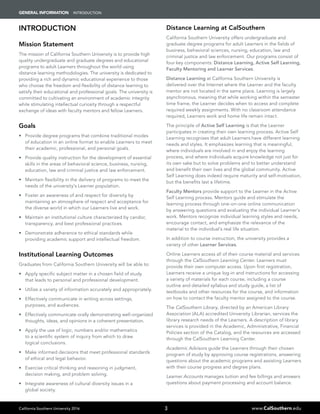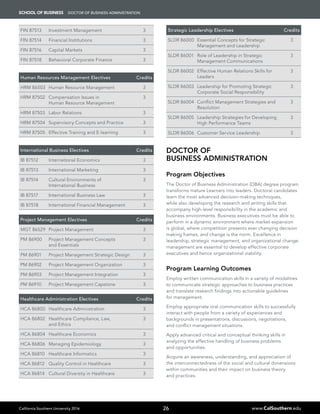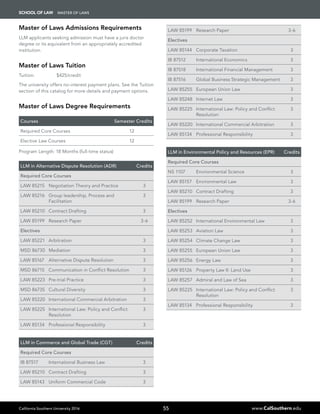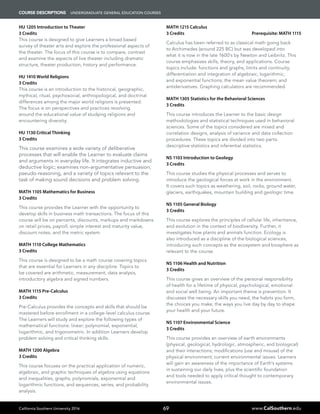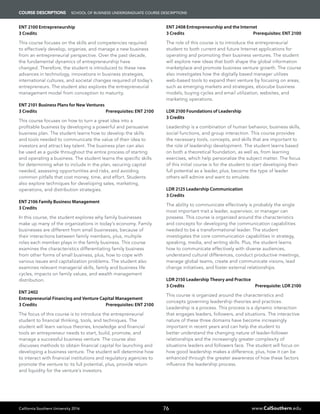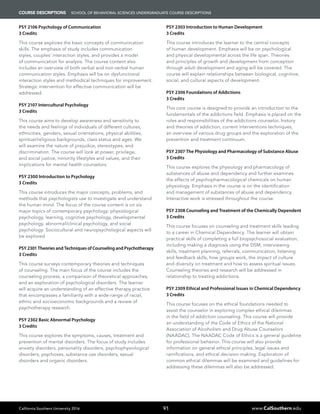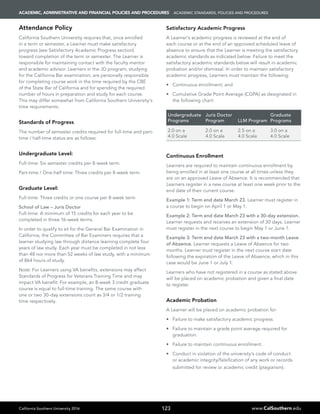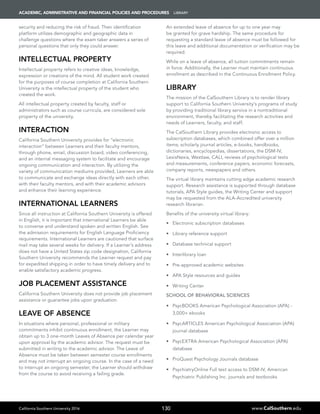This document is the 2016 catalog for California Southern University. It provides information on the university's accreditation, degree and certificate programs, admission requirements, academic policies and procedures, course descriptions, administration, and faculty. The catalog outlines 6 schools - Business, Behavioral Sciences, Law, Nursing, Criminal Justice, and General Education. It provides details on each school's programs, including objectives, requirements and curricula. The catalog serves as an informational guide for prospective and current students.










